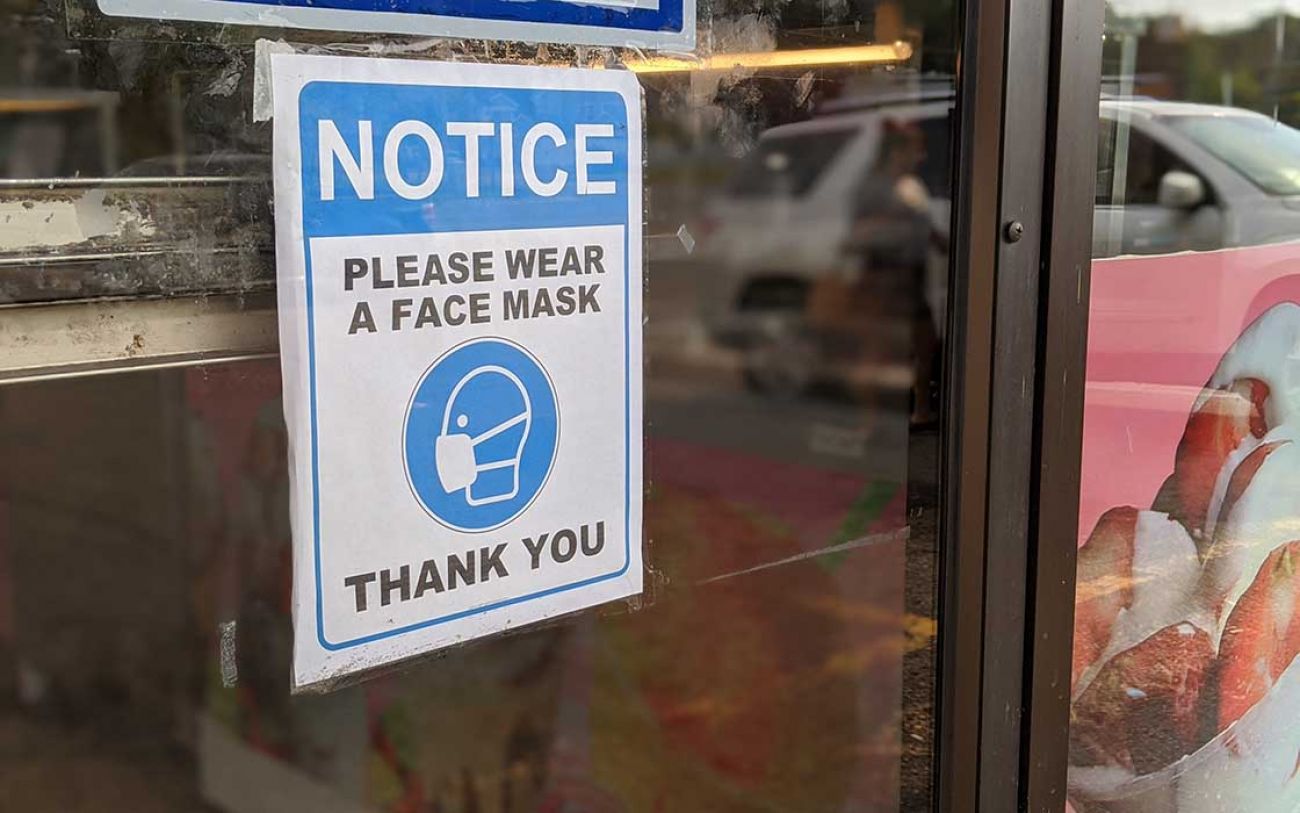After limiting Whitmer powers, Unlock Michigan now targets local health orders

Aug. 18: Grand Traverse bans vaccine mandates — and wants whole country to know
Aug. 17: Michigan GOP eyes limits to vaccine, mask rules. Health officials dismayed
The advocacy group that successfully campaigned to rein in Gov. Gretchen Whitmer’s emergency powers is shifting its sights to other public health orders.
Unlock Michigan, which scored a victory on July 21 when the Legislature repealed a 1945 law used by Whitmer to impose COVID-19 restrictions, now wants to place limits on a 1978 public health law that gives local health boards and the state department of health similar emergency powers.
“All we want to do is make sure that no governor gets to govern by decree, with no accountability, again,” Fred Wszolek, spokesperson for Unlock Michigan, told Bridge Michigan.
Public health officials warn that would gut the power to protect Michiganders from the worst health threats — tuberculosis, pertussis or even the current threat of Legionnaires’ Disease.
“The whole thing is just absolutely dangerous and it puts lives at risk,” said Linda Vail, Ingham County health officer and a former biomedical researcher. “What we're here for is to protect lives and to save lives, and there is no place for politics.”
Related:
- In Michigan, the COVID increase isn’t just among the unvaccinated anymore
- State’s top doc to Whitmer: School mask mandate would reduce COVID in Michigan
- Michigan Gov. Whitmer use of loopholes to raise millions attracts scrutiny
- GOP strategists: Efforts to recall Michigan Gov. Whitmer have backfired
- Michigan lawmakers repeal Whitmer powers months after court overturned them
- Feds won’t probe Michigan nursing home COVID policy, despite initial query
Vail used the powers granted to her by the law repeatedly throughout the pandemic.
She restricted crowd sizes when Michigan State University students continued to party in the first days of the pandemic, limited restaurant capacity following an outbreak at an East Lansing bar, restricted crowd sizes when MSU students, returning to off-campus housing in the fall, drove up infection rates, and reinforced crowd size restrictions this spring as mask mandates relaxed.
Vail acted locally, drawing her powers from the same 1978 law that allowed Michigan health directors Robert Gordon and his successor, Elizabeth Hertel, to issue health orders after the Michigan Supreme Court struck down a 1945 law which Whitmer had used to issue some of the first pandemic orders.
Wzsolek, with Unlock Michigan, and Republican lawmakers say pandemic orders like Vail’s are precisely why Michigan needs to tweak its laws.
Unlock Michigan organizers say they’ll start collecting signatures in the next few weeks.
Their proposal would limit health orders to 28 days. After that, lawmakers would have to approve limits like crowd sizes, mask requirements, curfews and limits on businesses and schools.
“Emergencies don't last forever … After a while it just becomes an issue you have to manage,” Wzsolek said. “And we have a constitution that tells you how to do that. And we shouldn't just short circuit all of those constitutional provisions, because somebody is power hungry.”
Sweeping state orders are used in rare circumstances and when public health is truly in jeopardy, said Norm Hess, executive director of the Michigan Association for Local Public Health.
“That the public seems largely unaware of this (until COVID-19) should underscore how infrequently they are used,” he said.
Both he and Vail say health officers must keep their priority on keeping the public safe, not wooing politicians.
That, in fact, is what they’re trained to do, Vail said.
According to a state administrative rule, the health officer must have a master’s degree in public health or a related field with varying levels of experience, depending on the type of degree, or a bachelor’s degree and eight years of full-time health experience, including five in public health administration.
“We have technical knowledge and expertise,” Vail said. “My colleagues are nurses, epidemiologists. I was a biomedical researcher with an infectious disease background… We don't lead these organizations because we know how to lead a business. We lead these organizations, because we know public health.”
Michael Van Beek, research director at the Midland-based free market Mackinac Center for Public Policy, said checks and balances are necessary because orders shouldn’t last indefinitely.
“It's not an attack on (health officials and) it doesn't take away their ability to handle an emergency,” he said.
Unlock Michigan’s strategy relies on an obscure mechanism that allows Michigan lawmakers to enact citizen-initiated petitions if they collect enough signatures to make the statewide ballot.
By law, once the Legislature passes the measures, the governor cannot veto them.
Wzsolek, with Unlock Michigan, said he hopes the Legislature will enact the effort to amend the public health code if the group collects enough signatures.
“This provision is in the (state) constitution for a reason, so when there's a deadlock between the executive branch and the legislative branch we can settle them with petitions,” Wzsolek said.
“And that’s what we intend to do.”
Whitmer’s office declined to comment. Fellow Democrats, including House Minority Leader Donna Lasinski, say the law granting the Legislature power to enact citizen initiatives is undemocratic.
“We have found a loophole for moneyed people who can put up $10 or $12 million to go around the will of the people, and to go around a governor who won in a landslide victory,” said Lasinski, D-Scio Township.
“Nothing about this effort is OK.”
Campaign records show a nonprofit tied to Senate Majority Leader Mike Shirkey — one of the loudest critics of Whitmer’s orders — gave $550,000 to Unlock Michigan last year.
The Michigan! My Michigan! social welfare organization was formed in 2018 in a manner that doesn’t require it to disclose its donors. Shirkey had raised money for the nonprofit, and his former chief of staff was listed as a board member of the group, according to The Detroit News.
See what new members are saying about why they donated to Bridge Michigan:
- “In order for this information to be accurate and unbiased it must be underwritten by its readers, not by special interests.” - Larry S.
- “Not many other media sources report on the topics Bridge does.” - Susan B.
- “Your journalism is outstanding and rare these days.” - Mark S.
If you want to ensure the future of nonpartisan, nonprofit Michigan journalism, please become a member today. You, too, will be asked why you donated and maybe we'll feature your quote next time!





